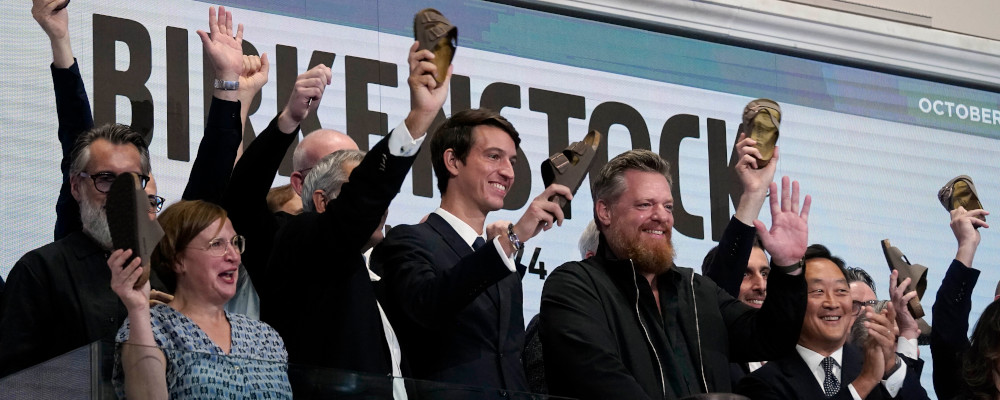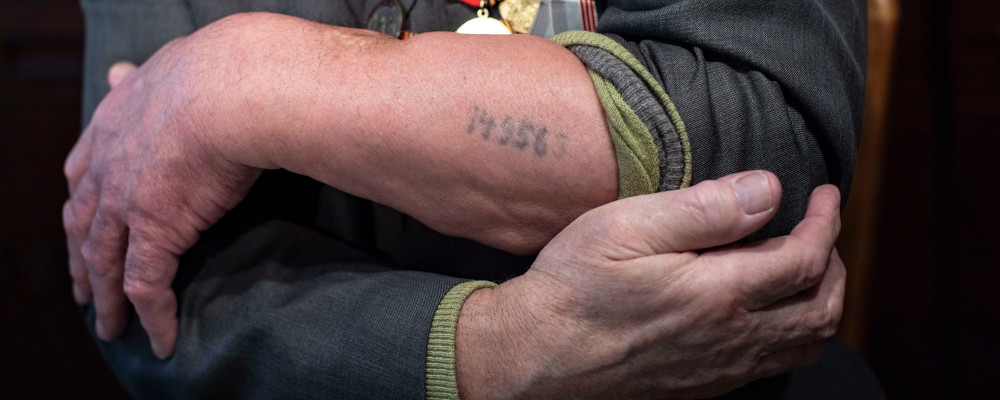On Friday, November 3rd, The Munk Debates held its 29th main stage debate, presenting the following motion: “Be it Resolved, liberalism gets the big questions right.”
Free trade, capitalism, and individual rights have remained foundational to liberalism, but more recent criticisms blame liberalism for problems such as growing inequality and political polarization. Has liberalism become a roadblock in the path of progress? Is a new guiding ideology needed to replace it?
Sohrab Ahmari, founder and editor of Compact and a contributing writer for The New Statesman, argued for the Con side. Here is his opening statement from the Munk Debates.
Thank you for having me. This is my first time in Toronto, or as we Iranians in the Diaspora call it, “Tehronto.”
“Resolved: liberalism gets the big questions right.” Before you make up your minds, you have to untangle what the big questions are. When you hear liberalism, you might think of tolerance, due process, impartial administration, self-government. But wait a second. The pre-liberal ancients were aware of what a fair trial should look like. Just look at the Bible. Self-government is as old as Greece. Impartial administration is as old as Rome and China. There, I just got in my mention of the Roman Empire for the day.
So if these values weren’t invented by a handful of Englishmen in the 17th and 18th centuries, then we have to ask: “What made liberal ideology new?” It was the answers that liberalism gave to the questions, “What are human beings? And what makes them come together to form political community?” And those answers were terribly wrong. They’ve yielded societies defined by eye-watering inequality, profound alienation, and the tyranny of the most selfish among us.
What are human beings? What makes us form political communities? Let’s turn to a living philosopher, I’ll tell you his name in a minute, to help us summarize the two starkly different sets of answers to these questions, the ancient answer and the relatively recent liberal one.
For a very long time, the core consensus of the Western tradition, as our thinker put it, was that human beings are naturally social. Political community comes naturally to the human animal, who yearns for the common good—which is also his or her own good as an individual who is part of the whole.
In this older telling, our philosopher said:
Freedom is not only the absence of external restraints. It’s about freeing ourselves from selfish passions, with politics and law helping guide us and helping us to fulfill our social natures, and thus to become more fully human. Liberal ideology trashed this core consensus. Human beings, for liberalism, are little more than self-interested brutes thrown into a brutish world and naturally at war with their fellows. We form political community because we fear each other. So the best we can achieve is to let everyone maximize his self-interest and hope the public good emerges spontaneously out of the ceaseless clash of human atoms.
Our thinker, the one we’ve summoned to present these two rival views, wasn’t very fond of the liberal answer. He doubted that people motivated solely by anxiety about their physical safety and the security of their property could build humane, decent societies. “The common good,” he worried, “disappears in societies founded upon individual self-interestedness.”
So who was he? I won’t keep you guessing any longer. It was none other than George Will, writing four decades ago. Today, he’s frequently a proponent of liberalism in its most extreme form: U.S.-style libertarianism. I don’t mention this to give George a hard time about his intellectual evolution. People are allowed to change their minds. I only turn to his earlier, wiser self because he did such a wonderful job framing our debate. “What are human beings? And why do we form community? Are we naturally social animals capable of discerning and building the common good? Or are we self-interested brutes who form a social contract out of bare necessity to protect ourselves from our rapacious neighbours?”
You’re welcome to choose that first set of answers, my friends. But before you do, keep three things in mind. First, as we said, liberalism is not a harmonious outgrowth of the Western tradition. It came as a shock to the value system the West had cherished for millennia. It was a rupture. The George Will of 1983 got the intellectual history right.
Second, remember that liberalism is not natural. The brutal state of nature is a philosopher’s myth, as is the atomized liberal individual. It took coercion on a monumental scale to bring about this liberal subject, to make reality out of the myth. We see this especially in economic history. To goad workers to compete individually in modern labour markets, the first liberal society, England, had to enclose and destroy the common grounds that had been used by peasants for grazing, blocking peasants from shared lands that permitted generations to sustain themselves in communities of leisure and mutual help.

The insecurity you feel in today’s labour market, that’s not natural either. Hedge funds and private equity firms destroying the real economy, privatizing the gains while socializing the costs. None of that is natural or fundamental to who we are. The minute that working people have the chance to resist any of this, they do something unliberal. They mount collective action. They form labour unions. They demand social solidarity and welfare. They defend society.
Third and finally, remember that liberalism has not overcome coercion in human affairs. Liberal societies are shot through with coercion, only it’s often meted out by private actors, which makes it harder in some ways to combat. Consider censorship—does it make any meaningful difference that today’s censorship is meted out by large privately owned corporations? Do a Silicon Valley dweebs’ Birkenstocks taste any better than a commandant’s boots? Here, liberalism’s faith in private self-interest has betrayed even its own aspirations toward open debate.
In 1983, George Will lamented that “A trait that used to be considered a defect, self-interestedness, had become the pillar of Western society.” He was right. Liberalism gets the big questions wrong, and so I urge you to oppose tonight’s motion. Thank you very much.
Recommended for You

Ginny Roth: J.D. Vance, Pierre Poilievre, and how they slice their economic pie

David Polansky: As President Biden leaves the race, will the Democratic Party hodgepodge hold?

Adam Zivo: No Dr. Bonnie Henry, drug prohibition is not ‘white supremacy’

Peter Menzies: The mainstream media should love Doug Ford, now that he’s subsidizing them









